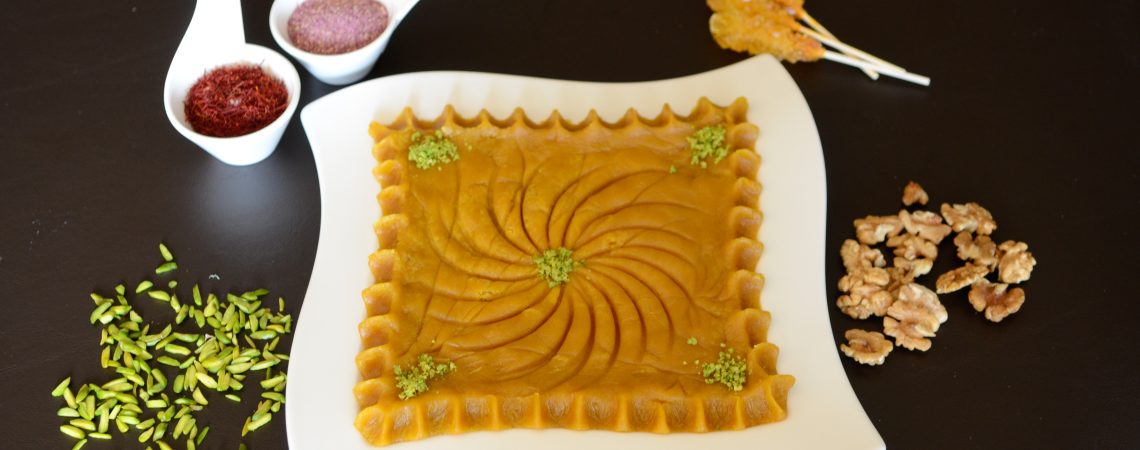Halva was originally made in pre-Islamic Persia as a celebratory dish. Known as sen, it was a fudge made of sprouting wheat, dates, walnuts, fennel seeds, turmeric and oil, and it was prepared on the last day of the new year festival to sustain the ancestors on their heavenward journey following their annual visit to earth.”
After the Islamic conquest continued to make sen (and still do in south-eastern Iran), but gradually another form of this fudge came to be made on the departure of loved ones to heaven. Today it is called halva, The Arabic derivative of ‘sweet’, and it is a plain sweet dish, made only on the occasion of the death of a close relative to be offered to mourners at the memorial service.
